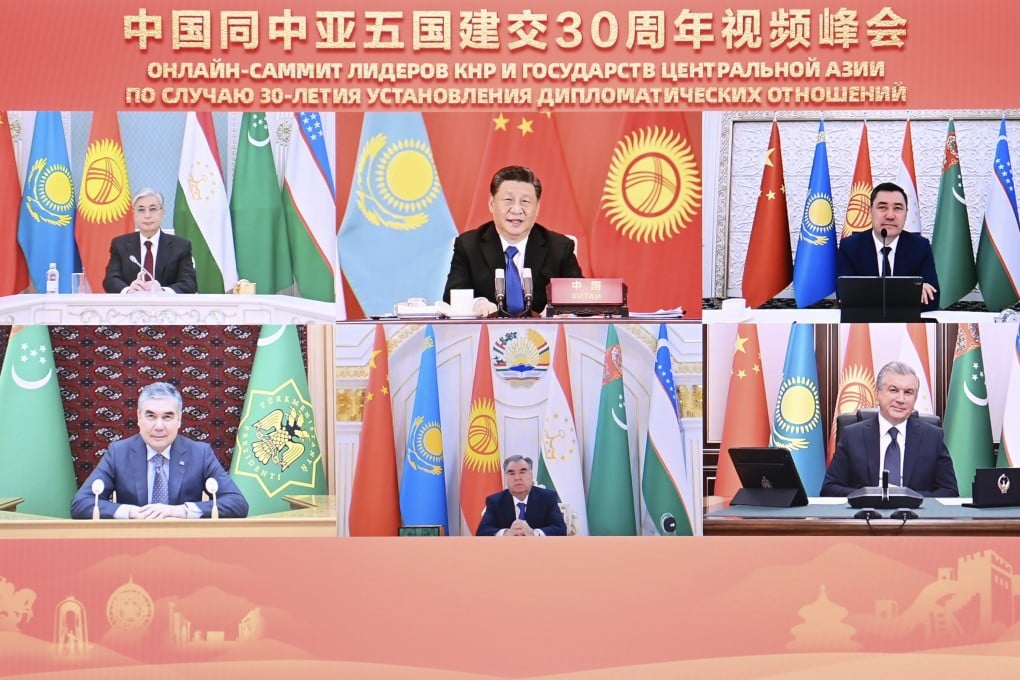Advertisement
China urged to enhance security, economic ties in Eurasia as tensions with West grow
- President Xi Jinping on Tuesday pledged US$500 million in aid and 50 million Covid-19 vaccine doses to Kazakhstan, Uzbekistan, Turkmenistan, Kyrgyzstan and Tajikistan
- Analysts say China can ‘shape’ the security environment on its northwestern frontier and bolster economic influence with closer ties to the five nations
Reading Time:2 minutes
Why you can trust SCMP
27

China should enhance economic and security ties with Eurasia to offset resistance from the United States and its allies, but Beijing needs to be alert to geopolitical instability and anger over its alleged mistreatment of Muslim minorities in Xinjiang, analysts said.
With relations between China and the US showing no signs of rapprochement, the world’s No 2 economy should look to its western neighbours for support, said Da Wei, director of the Centre for International Security and Strategy at Tsinghua University.
“Eurasia is the main battlefield for China’s diplomacy to develop and take initiatives,” he said at a forum held by Renmin University in Beijing on Tuesday.
Advertisement
Under China’s Belt and Road Initiative, Eurasia encompasses Northeast Asia, Central and Eastern Europe and the Central Asian republics, which are a crucial nexus for cross-regional trade, investment and infrastructure development.
“Eurasia is a big stage for us to shape security on our northwestern periphery, a big market for our Belt and Road Initiative construction and a big channel for westward opening up,” said Yang Bingjian, an official at the United Front Work Department, a branch of the Communist Party involved in extending China’s influence abroad.
Advertisement
Advertisement
Select Voice
Select Speed
1.00x
